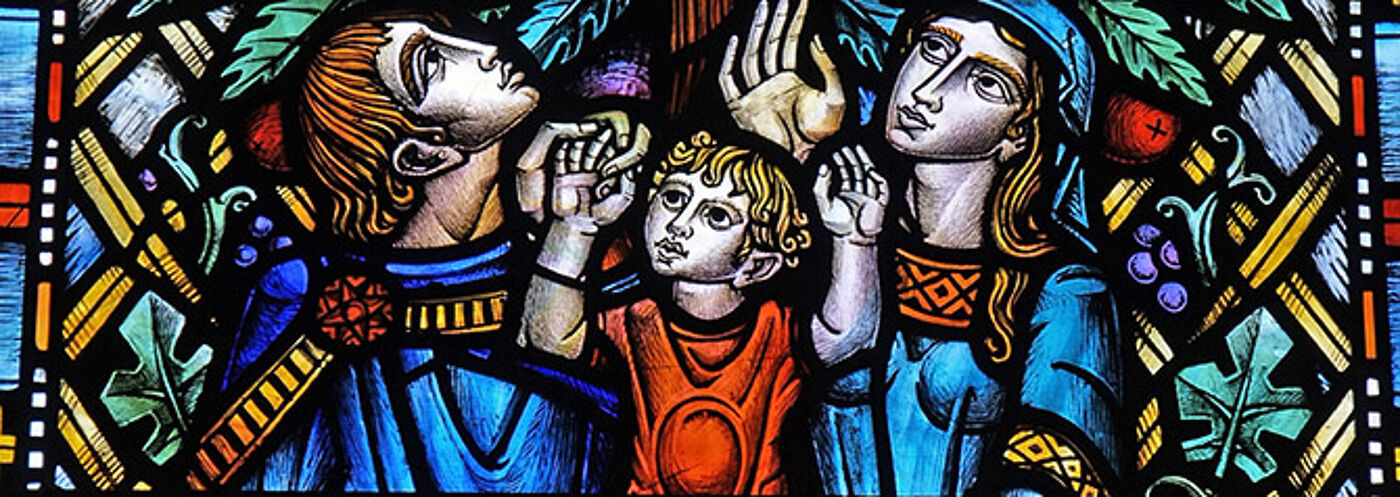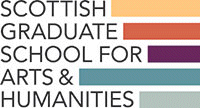Theology & Religious Studies PhD/MPhil/MTh/MLitt (Research)/MRes

Self funded opportunities
- Theology Through Creative Practice PhD, MPhil
Research in Theology and Religious Studies encompasses a wide range of traditions, methods and perspectives and has been an ever-present part of the mission of the University since its foundation in 1451.
- PhD: 3 years full-time; 5 years part-time; Thesis of 70,000-100,000 words
- MLitt (Research): 2 years full-time; 3 years part-time; Thesis of 40,000-70,000 words
- MPhil/MTh: 1 year full-time; 2 years part-time; Thesis of 30,000-40,000 words
- MRes: 1 year full-time; 2 years part-time; Thesis of 20,000-30,000 words
Overview
Researchers in Theology and Religious Studies continue to build on Glasgow's reputation for excellence in traditional fields of theology including:
- Biblical Studies
- Systematic Theology
- Catholic Moral Theology
- Practical Theology
- Church History and Scottish Religious History
Glasgow also has a strong profile in:
- Judaism and Jewish Studies
- Islam, particularly Sufism and religion in modern Iran
- Religion in the Asian Subcontinent
- Religion in Japan
Theology and Religious Studies in Glasgow has strong interdisciplinary research links to other subjects across the College of Arts & Humanities. Recent collaborations have involved English and Scottish Literature, Medieval and Renaissance Studies, History, Classics, Law, Education, Philosophy, Medical Humanities and several Glasgow Museums.
Contact: Dr Mia Spiro, PG Convener, Theology & Religious Studies
Research clusters
- Biblical Interpretation
- History of Christianity
- Religion, conflict and transition
- Religion in Scotland
- Religion, literature and culture
Study options
- PhD: 3 years full-time; 5 years part-time. Thesis of 70,000-100,000 words
- MLitt: 2 years full-time; 3 years part-time. Thesis of 40,000-70,000 words
- MPhil/MTh: 1 year full-time; 2 years part-time. Thesis of 30,000-40,000 words
- MRes: 1 year full-time; 2 years part-time. 60-80 Credit taught course plus a thesis of 20,000- 30,000 words
Entry requirements
Our regular standard of admission is at least an Upper Second Class Honours degree (2:1), although candidates will usually also have completed or be undertaking a Masters qualification.
Research outline
Candidates are required to provide an outline of the proposed research subject in about 1000 words. This need not be your final thesis proposal but should include:
- a straightforward, descriptive, and informative title
- the question that your research will address
- an account of why this question is important and worth investigating
- an assessment of how your own research will engage with recent study in the subject
- a brief account of the methodology and approach you will take
- a discussion of the primary sources that your research will draw upon, including printed books, manuscripts, archives, libraries, or museums
- an indicative bibliography of secondary sources that you have already consulted and/or are planning to consult
Your application, including your references and research proposal, will be passed to members of staff whose expertise and research interests most closely match the area of your proposed study.
English language requirements
Fees and funding
Fees
2025/26
- UK: £5,005
- International & EU: £26,580
Prices are based on the annual fee for full-time study. Fees for part-time study are half the full-time fee.
Irish nationals who are living in the Common Travel Area of the UK, EU nationals with settled or pre-settled status, and Internationals with Indefinite Leave to remain status can also qualify for home fee status.
Alumni discount
We offer a 20% discount to our alumni on all Postgraduate Research and full Postgraduate Taught Masters programmes. This includes University of Glasgow graduates and those who have completed Junior Year Abroad, Exchange programme or International Summer School with us. The discount is applied at registration for students who are not in receipt of another discount or scholarship funded by the University. No additional application is required.
Possible additional fees
- Re-submission by a research student £540
- Submission for a higher degree by published work £1,355
- Submission of thesis after deadline lapsed £350
- Submission by staff in receipt of staff scholarship £790
Depending on the nature of the research project, some students will be expected to pay a bench fee (also known as research support costs) to cover additional costs. The exact amount will be provided in the offer letter.
- College of Arts & Humanities Graduate School funding opportunities
Support
Teaching and research in the Arts and Humanities is supported by the outstanding resources of our University Library with its special collections and our on-campus Hunterian Museum and Art Gallery.
Our close links and partnerships with Glasgow Life, and the city’s many museums, art galleries, performing arts and music venues, international festivals and creative industry organisations make the University of Glasgow the ideal place for postgraduate study of the arts.
Graduate School
Our Graduate School creates a productive and interdisciplinary collegiate environment for all of our research students. We offer a range of services, courses and skills development opportunities for research students.
The College of Arts & Humanities is home to a vibrant and diverse community of students enrolled on taught masters and research programmes within a stimulating intellectual and cultural environment. Across every school and subject area the college is home to world-leading and agenda-setting research.
Find out more about what is happening in the community by following us on social media.
You will also be part of the wider Scottish Graduate School for Arts and Humanities, the world's first national graduate school in the Arts & Humanities. Membership includes 16 Scottish universities, four art schools & the national conservatoire, with support from the arts, culture, creative & heritage sectors.
Resources
Research is underpinned by several regular seminar series: the Theology and Religious Research seminar, the Literature and Theology seminar, and the Theology and Biblical Studies seminar. The sense of community is greatly enhanced by the activities of the Glasgow University Theology and Religious Studies Student Society (GUTRSSS) who organise regular social activities and host a weekly coffee morning for staff and students.


